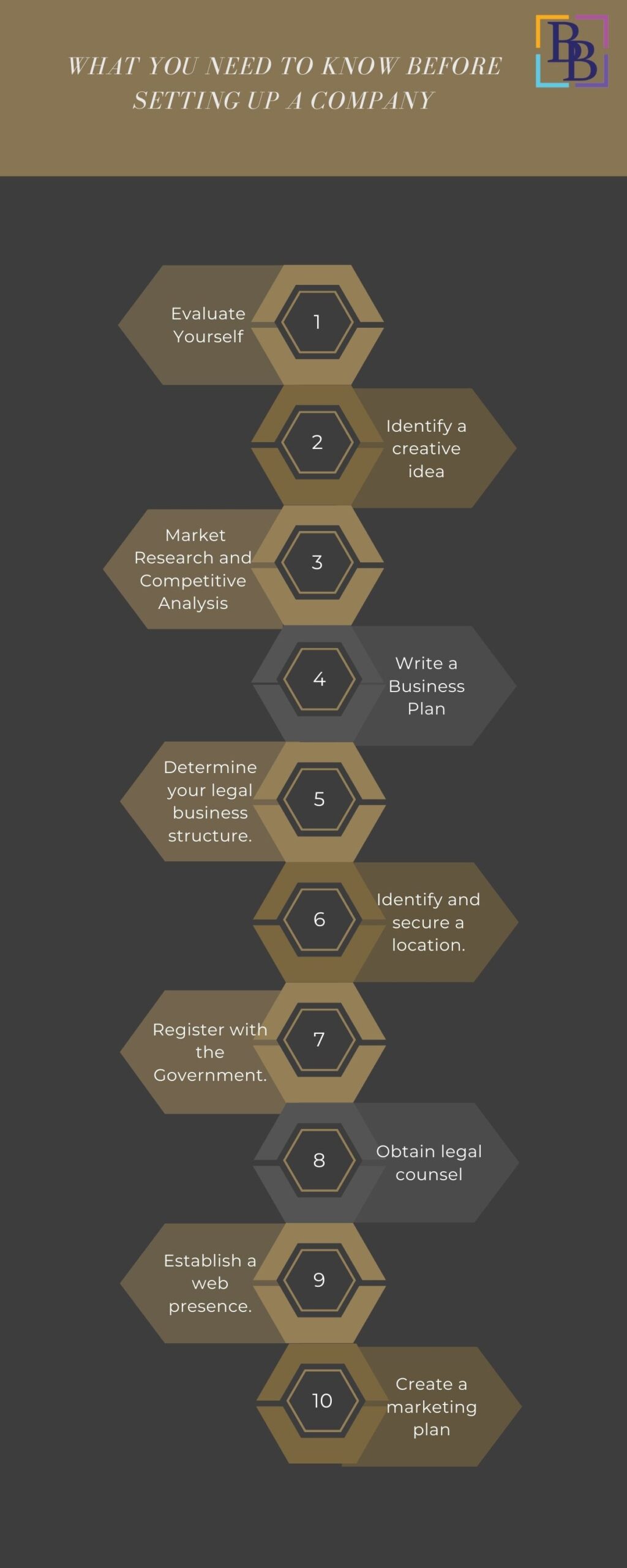As we know, no two businesses can be exactly the same, there are certain common steps entrepreneurs and new business owners must take before opening the doors of a new company.
Starting a business can be a persuading thought, particularly for first-time business people or utilized people who are burnt out on the 8 am-5 pm work. It's uplifting to begin a business when you ponder the opportunity of not working 8-9 hours daily in a bound office, not answering to a manager, and the chance of perpetual benefit.
Starting a business is a decent choice, in any case, it can likewise be unpleasant, stressful, challenging, and not as basic as it seems to be.
As per the Ministry of Corporate Affairs, The industrial sector, comprising manufacturing and electricity, gas, and water firms, set up more than 47,800 companies in FY22.
As many as 167,076 companies were set up in FY22, a 7.5% increase from the 155,377 companies created in the previous year. Around 122,721 companies were set up in FY20.
Data from the Ministry of Corporate Affairs showed that a total of 22,32,699 companies were registered in the country as of September 30.
I’m writing this article to share with aspiring entrepreneurs, even existing ones, what are the things to consider before jumping into the world of business.
Table of Contents
1. Evaluate Yourself:
We should begin with the most essential question: Why would you like to begin a business? and what sort of business do you need to begin?
When you have the explanation, start asking yourself much more inquiries to assist you with sorting out the kind of business you ought to begin, and assuming you have the stuff.
- What abilities do you have?
- Where does your energy lie?
- Where could your subject matter be?
- What amount might you at any point bear to spend, realizing that most organizations fizzle?
- How much capital do you want?
- What kind of way of life would you like to live?
- Is it safe to say that you are even prepared to be a business person?
Be ruthlessly genuine with your responses. This will make an establishment for all that you do pushing ahead, so it's smarter to know reality now than later.
2. Identify a creative idea:
The best organizations generally began from a similar spot: a thought. Consider a business thought the seed of your organization. You really want that before you can start adding manure, watering, and developing reciprocal plants. At the end of the prior day, you can do every one of the means underneath, and ensure you have a strong thought for your new organization - it's what your business depends on. What is an exceptional help you can give? Where is there a hole in the commercial centre that you can fill? What are you going to sell in your business?
In general, you can choose to provide the following: service, merchandising, or manufacturing.
3. Conduct Market Research and Competitive Analysis:
Market Research assists you with tracking down clients for your business. Competitive Analysis assists you with making your business special. Consolidate them to make a unique idea for your independent venture.
Market Research mixes customer conduct and financial patterns to affirm and further develop your business thought.
It's vital to comprehend your customer base all along. Market Research allows you to reduce risk even while your business is still a glimmer in your eye.
Then answer the accompanying inquiries to get an insight into your market:
- Demand: Is there a demand for your item or administration?
- Market size: what number of individuals are interested in your product or service?
- Economical pointers: What are the income range and employment rate?
- Demographics: Where do your clients reside and where could your business be at any point reach?
- Market Saturation: what number of comparative choices are now accessible to customers?
- Pricing: What do potential clients pay for these other options?
Competitive Analysis helps you with insights from organizations targeting your expected clients. This is vital to characterizing an upper hand that makes maintainable income.
Competitive Analysis is to distinguish your opposition by-product offering or administration and market share. Evaluate the accompanying qualities of the Competitive Analysis:
- Market share
- Strengths and weaknesses
- Your window of opportunity to enter the market
- The importance of your target market to your competitors
- Any barriers that may hinder you as you enter the market
- Indirect or secondary competitors who may impact your success
4. Write a Business Plan:
After conducting market Research experts agree that writing a business plan is the next step you should take. Creating a business plan displays a genuine level of commitment, but it also forces prospective business owners to answer essential and sometimes challenging questions at the start of the development process. A business plan is also the first thing any investor will request. It will provide them with a detailed outline of your proposed business, your knowledge of the industry and your understanding of the business you proposed, and the monetary prerequisites and expected potential gain.
5. Determine your legal business structure.
Before you can register your company, you need to decide what kind of entity it is. because it’s not an easy change to make after the documentation. Each type of legal entity comes with specific requirements and restrictions, and only certain types of entities will be accurate to your particular business needs. If you need help, a corporate attorney or experienced business accountant, or legal advisor can offer timely and accurate advice for creating the proper legal structure for your proposed company.
Your business structure legally affects everything from how you file your taxes to your personal liability if something goes wrong.
In the end, it is up to you to determine which type of entity is best for your current needs and future business goals.
6. Identify and secure a location.
Whether you choose a home office or an entire building in an industrial park, you need to know where your business will be located before proceeding with registration and launching it.

7. Register with the Government.
Step 1: Application for DSC (Digital signature certificate): One can apply online and obtain a DSC from agencies certified by the government.
Step 2: DIN (Directors Identification Number): A DIN is required for a director in a company. It can be obtained by filing an E-form DIR-3 which would require basic details and identity proof of the person proposed to be the director.
Step 3: Apply for the Name reservation: For name approval, the promoter of the company has to send an application to the Ministry of Corporate affairs but we have to make sure the same name should not exist in their list.
Step 4: Drafting & filing (Memorandum of Association) MOA & (Articles of Association)AOA to register the company: We have to submit the MOA and AOA to the Registrar Of Companies(ROC)
Step 5: Apply for the Incorporation certificate, PAN, and TAN of the company in the Ministry of Corporate affairs.
8. Obtain legal counsel.
Whether you need to have in-house guidance or recruit a lawyer on a case-by-case basis, your business needs to have access to legal counsel. You might require legal counsel representation in corporate, taxation, labour, or international regulation. Wherever regulatory requirements demand compliance, asking a lawyer to review and sign off on this part of your business will save you time and money and shield you from expected legitimate implications.
9. Establish a web presence.
Apart from a Physical presence, your business should have a virtual presence. First, you have to register a domain name that matches your business’s name so you are ready to build your website when the time comes. Then, once you are ready to develop your website, research the options available to ensure you are selecting the right option like freelance or website builder, that will meet your immediate needs and be able to support your desired functionality in the future.
10. Create a marketing plan.
Composing a showcasing plan that supplements your general strategy will assist with guaranteeing your new business prosperity. A completely improved site ought to be at the focal point of your promotion plan, regardless of whether you are arranging a physical business. Survey these extra methods for coming up with a promoting methodology for your business.
Start by utilizing these strategies, which include investing in your customer service and getting personal, but realize your work will never be done. You'll constantly be competing for these customers in the marketplace, and you can never simply rest on your laurels. Keep researching the market, hiring good people and making a superior product and you'll be on your way to building the empire you always dreamed about.
Conclusion:
We hope you've enjoyed reading this blog about what you need to do before setting up your new company, if so please feel free to share it with your friends. As mentioned earlier in the article, the steps can be difficult to understand and the article has been written with this in mind. If you have any other questions or concerns about setting up a company, please contact us anytime at info@bbnc.in. Thank you for reading, and we are always excited when one of our posts is able to provide useful information on a topic like this!
